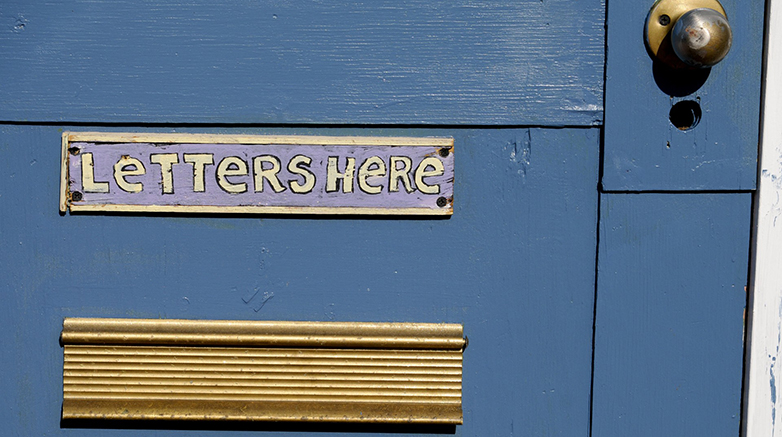[Editor’s Note: Dr. Novom of Tarzana responds to a proposal by the editor of The Jewish Journal to develop a new scale for judging anti-Semites. The editor’s column is reprinted in full below the letter.]
Dear Rob Eshman:
In a recent edition of The Jewish Journal, you have proposed a Mel Gibson Scale for rating anti-Semitism.
I assume Gibson gets a rating of “one Gibson,” the lowest rating in your article, for his clearly anti-Semitic remarks while under the influence of alcohol. Some argue that alcohol caused him to make those remarks, and therefore he is less culpable.
Many others, myself included, believe alcohol merely allowed his true beliefs to be expressed by clouding his judgment of what should or shouldn’t be said to a police officer when you are a public figure.
The highest (seven Gibsons) rating was given to Glenn Beck. You cite two related examples of Beck’s anti-Semitism, which earned him that maximum rating on the Gibson Scale.
One was Beck’s “diatribes” against George Soros in recent months. The other was when Beck “compared Reform Judaism to Radicalized Islam.”
I disagree with Beck on both of these remarks. But to call them anti-Semitic, let alone earning him the highest rating on the Gibson Scale, is absurd.
Glenn Beck brought up Soros’s own account of his activities during World War II in Hungary when he avoided Nazi persecution by passing himself off as a Christian, accompanied a government official on his rounds to confiscate Jewish property, and, in a recent interview, denied feeling guilty about those actions.
Beck clearly meant to denigrate Soros’s integrity by bringing this up. I disagree with his doing that because none of us knows how we would behave under similar circumstances.
But how is that anti-Semitic?
Beck compared Reform Judaism to Radicalized Islam while he was commenting on a full page ad in the Wall Street Journal, taken out by a large number of Reform rabbis, denouncing his comments about Soros. His actual comments when responding to that ad were something like:
Reform Judaism is more about politics than religious faith and the same is true of Radicalized Islam.
Even ignoring the issue of terrorism, I do not believe that is a fair comparison because while the majority of Reform Jews are politically liberal, Reform Judaism does not espouse a uniform political goal whereas Radicalized Islam does – namely the institution of a Muslim monotheistic government.
Beck used an inaccurate analogy, and an obnoxious one, because of the tactics used by Radicalized Islam.
He later apologized.
Beck may have a low opinion of Reform Judaism’s strength of faith, as do many Orthodox Jews. But this is not anti-Semitism.
It is obvious to me that when you awarded Beck the highest — worst — rating on the Gibson anti-Semitism Scale of anyone else mentioned in your article, you were motivated more by Beck’s political beliefs than any hint of anti-Semitism.
I beg you not to descend into the same foul intellectual territory where many liberals have gone. They have said anyone who criticizes the politics of President Obama is a racist.
Steven Novom, M.D., may be contacted at stevenovom@yahoo.com
The Gibson on Scale
From Rob Eshman, Editor,
The Jewish Journal
The sheer volume of anti-Semitic spoutings and sputters in recent months poses a serious question for Jews: When should we laugh? When should we worry?
When should we fight back?
The problem is one of priorities. It is so tedious to drop everything we’re doing and lavish attention on some offhand derogatory comment. On the other hand, it is easy to become inured to the babble. Sometimes a drizzle means a storm.
What we need is a standard way to assess the severity of the anti-Semitism, a unit of measurement, like watts and APGAR and Richter. A standard unit can serve as a shorthand early-warning system to us all. The people who keep track of such things can let us know, immediately, alphanumerically, just how much the latest anti-Semitic outburst should worry us. Unless someone has a better idea, I say we call the unit of measurement a Gibson.
The Gibson Scale measures the severity of an anti-Semitic remark from 1— think Woody Allen in “Annie Hall” imagining he heard someone say “Jew eat?”— to 10 — think the vicious hate-filled images on al-Qaeda and Hamas “educational” materials that inspire the murder of innocents. I’m not sure who gets to actually do the rating. It would be terrible for this to turn into a turf war between competing Jewish acronyms, and even worse if Jewish defense organizations used the fear of anti-Semitism to grab donor attention. I suggest a rottentomatoes.com or metacritic.com aggregator approach, where many professionals can rate, and the average appears on a Web site, thegibsonscale.com. Conveniently, I just bought that URL. So, let’s move from theory to practice.
Charlie Sheen: 2 Gibsons
The actor Charlie Sheen’s reference to “Two and a Half Men” producer Chuck Lorre as “Chaim Levine” seems to be a one-off. I don’t believe Charlie Sheen hates Jews. I believe he hates a Jew. The last time I checked, that’s allowed. Sheen is also nearing the perigee of a spectacular flame-out, fueled either by too much booze, too much coke or just too much Charlie Sheen. If you heard Sheen on “The Howard Stern Show,” you wouldn’t be worried for Jews, you’d be worried for Sheen’s parents
John Galliano: 4 Gibsons
In a drunken hissy-fit, Christian Dior designer John Galliano spewed hate at a couple in a French café. Then a video surfaced in which he said, “I love Hitler.” Now he will stand trial in French court on charges of making “public insults based on … origin, religious affiliation, race or ethnicity.” Galliano was fired, made an apology and faced the wrath of actress Natalie Portman. For all that, this was garden-variety claptrap from the potty mouth of someone whose followers are looking for fall fashion, not political marching orders.
Julian Assange: 5 Gibsons
Assange is the WikiLeaks mastermind who claimed that a cabal of powerful Jewish journalists is behind the smearing of WikiLeaks. What’s spooky here is that Assange’s legions of followers are conspiracy-minded in the first place. Add the word Jew to the mix, and their overheated imaginations can fill in the blanks. On the other hand, whatever credibility Assange did have with most journalists and admirers went down several notches when the cutting-edge anarchist reached for the most stale of stereotypes.
Glenn Beck: 7 Gibsons
Sorry, Fox News fans, but the network’s former highest profile broadcaster moves the needle into the light-red zone. In the past few months, he has launched diatribes against billionaire George Soros that regurgitate every Euro-trope about the International Jew. Lately, Beck compared Reform Judaism to “radicalized Islam.”
This is no Chaim Levine. Beck has a politically engaged following that hangs on his every word. He has sold 4 million books, reaches millions more through his Web site and, until June, had a bully pulpit provided him by Roger Ailes (interesting question: How many Gibsons accrue to Roger Ailes as Beck’s enabler?).
The only thing that pushes Beck’s Gibson rating down were his TV ratings: They were down, too, before he left. Beck had lost a million viewers from his peak (though he still had more than all his competitors combined). The New York Times’s David Carr puts the blame for that on what appeared to be Beck’s nonstop shrill, panicky, End Times rants.
In other words, Glenn Beck appeared to be losing it.
And there, I suppose, is a lesson the Gibson Scale can teach us: Anti-Semitism is the last stop on the way to Crazy Town. A 1996 study by the psychiatrist and neuroscientist Mortimer Ostow determined that the more one held anti-Semitic beliefs, the more likely he was to harbor psychotic thinking. (The opposite was true as well: The less you believe in anti-Semitic stereotypes, the less of a nutter you are.)
“In the presence of a sense of disorganization and chaos, societies congeal into fundamentalist groups that require a mythic enemy,” wrote Ostow. “These groups tend to cultivate apocalyptic paranoia. Under those circumstances, anti-Jewish sentiment and discrimination become active persecution.”
Apocalyptic thinkers like Beck need an enemy to kill so society can be reborn. That’s what shoots Beck to the top of the charts, with Assange behind, though with a bullet.
As for Sheen, Galliano and Gibson, the Jews are the least of their problems. And they are the least of ours.







